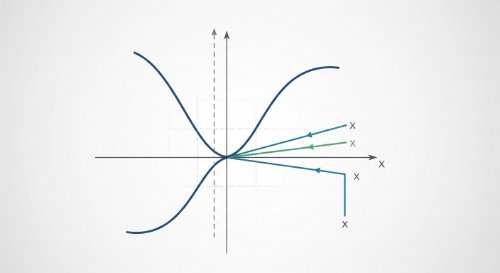Overview of the bisection method - Equations in One Variable (1) | Introduction to Numerical Methods (Undergraduate Foundation)
SPONSORED Get Personalized Tutoring NowStruggling with a tough concept or looking to advance your skills? Our expert tutors offer one-to-one guidance tailored to your unique needs.
Get instant support, clear explanations, and practical strategies to master even the most challenging subjects. With flexible scheduling and customized learning plans, success is just a session away.
Book your personalized tutoring today and start achieving your academic goals!
Get Personalized Tutoring NowStruggling with a tough concept or looking to advance your skills? Our expert tutors offer one-to-one guidance tailored to your unique needs.
Get instant support, clear explanations, and practical strategies to master even the most challenging subjects. With flexible scheduling and customized learning plans, success is just a session away.
Book your personalized tutoring today and start achieving your academic goals!
Struggling with a tough concept or looking to advance your skills? Our expert tutors offer one-to-one guidance tailored to your unique needs. Get instant support, clear explanations, and practical strategies to master even the most challenging subjects. With flexible scheduling and customized learning plans, success is just a session away. Book your personalized tutoring today and start achieving your academic goals!
 Introduction to Numerical Methods (Undergraduate Foundation)This course covers numerical methods for solving problems that have no exact analytical solution. It is a practical study of iterative approximation techniques. The material is focused on two core areas: finding the roots of single-variable equations using the Bisection and Newton's methods, and approximating definite integrals using the Trapezoidal and Simpson's rules.
Numerical methods are the foundation of all modern computational problem-solving in science, engineering, and finance. These are the algorithms that power computer simulations, engineering design software, and financial modelling tools. The ability to find approximate solutions to complex equations is a fundamental skill for any technical or scientific professional.
By the end of this course, you will be able to apply the Bisection and Newton's methods to find the roots of single-variable equations. You will also be able to use the Trapezoidal and Simpson's rules to calculate the approximate value of definite integrals, providing a core toolkit for numerical approximation.
This course is for undergraduate foundation students in engineering, physics, and computer science. It is an essential topic for anyone who will use computational tools to solve mathematical problems. A solid understanding of single-variable calculus is a prerequisite.
Introduction to Numerical Methods (Undergraduate Foundation)This course covers numerical methods for solving problems that have no exact analytical solution. It is a practical study of iterative approximation techniques. The material is focused on two core areas: finding the roots of single-variable equations using the Bisection and Newton's methods, and approximating definite integrals using the Trapezoidal and Simpson's rules.
Numerical methods are the foundation of all modern computational problem-solving in science, engineering, and finance. These are the algorithms that power computer simulations, engineering design software, and financial modelling tools. The ability to find approximate solutions to complex equations is a fundamental skill for any technical or scientific professional.
By the end of this course, you will be able to apply the Bisection and Newton's methods to find the roots of single-variable equations. You will also be able to use the Trapezoidal and Simpson's rules to calculate the approximate value of definite integrals, providing a core toolkit for numerical approximation.
This course is for undergraduate foundation students in engineering, physics, and computer science. It is an essential topic for anyone who will use computational tools to solve mathematical problems. A solid understanding of single-variable calculus is a prerequisite.
This course covers numerical methods for solving problems that have no exact analytical solution. It is a practical study of iterative approximation techniques. The material is focused on two core areas: finding the roots of single-variable equations using the Bisection and Newton's methods, and approximating definite integrals using the Trapezoidal and Simpson's rules. Numerical methods are the foundation of all modern computational problem-solving in science, engineering, and finance. These are the algorithms that power computer simulations, engineering design software, and financial modelling tools. The ability to find approximate solutions to complex equations is a fundamental skill for any technical or scientific professional. By the end of this course, you will be able to apply the Bisection and Newton's methods to find the roots of single-variable equations. You will also be able to use the Trapezoidal and Simpson's rules to calculate the approximate value of definite integrals, providing a core toolkit for numerical approximation. This course is for undergraduate foundation students in engineering, physics, and computer science. It is an essential topic for anyone who will use computational tools to solve mathematical problems. A solid understanding of single-variable calculus is a prerequisite.
![[OAU, Ife] MTH 201: Mathematical Methods I](https://media.unidrills.com/avatars/learningTrack/OHoduvR7EGCLQ1QVppMK.JPEG) [OAU, Ife] MTH 201: Mathematical Methods IThis learning track delivers the complete mathematical toolkit required for a university-level science, engineering, or computing degree. It systematically covers the entire MTH 201 curriculum, building from the foundational principles of single-variable calculus - functions, limits, continuity, and differentiability - to the advanced methods of multivariable calculus, infinite series, numerical methods, and ordinary differential equations. This is the definitive preparation for advanced quantitative study.
This programme is designed for second-year students offering MTH 201 at Obafemi Awolowo University, Ile-Ife, Nigeria. It is also helpful for any student in a STEM field - including physics, engineering, and computer science - who requires a rigorous and comprehensive command of calculus and its applications.
This track delivers a full skill set in mathematical analysis and applied problem-solving. Graduates will be able to solve a wide range of problems, from optimising multivariable functions to modelling dynamic systems with differential equations and testing the convergence of infinite series. This programme directly prepares students for success in advanced courses in vector calculus, partial differential equations, and real analysis, providing the necessary foundation for a career in engineering, data science, or theoretical physics.
[OAU, Ife] MTH 201: Mathematical Methods IThis learning track delivers the complete mathematical toolkit required for a university-level science, engineering, or computing degree. It systematically covers the entire MTH 201 curriculum, building from the foundational principles of single-variable calculus - functions, limits, continuity, and differentiability - to the advanced methods of multivariable calculus, infinite series, numerical methods, and ordinary differential equations. This is the definitive preparation for advanced quantitative study.
This programme is designed for second-year students offering MTH 201 at Obafemi Awolowo University, Ile-Ife, Nigeria. It is also helpful for any student in a STEM field - including physics, engineering, and computer science - who requires a rigorous and comprehensive command of calculus and its applications.
This track delivers a full skill set in mathematical analysis and applied problem-solving. Graduates will be able to solve a wide range of problems, from optimising multivariable functions to modelling dynamic systems with differential equations and testing the convergence of infinite series. This programme directly prepares students for success in advanced courses in vector calculus, partial differential equations, and real analysis, providing the necessary foundation for a career in engineering, data science, or theoretical physics.
This learning track delivers the complete mathematical toolkit required for a university-level science, engineering, or computing degree. It systematically covers the entire MTH 201 curriculum, building from the foundational principles of single-variable calculus - functions, limits, continuity, and differentiability - to the advanced methods of multivariable calculus, infinite series, numerical methods, and ordinary differential equations. This is the definitive preparation for advanced quantitative study. This programme is designed for second-year students offering MTH 201 at Obafemi Awolowo University, Ile-Ife, Nigeria. It is also helpful for any student in a STEM field - including physics, engineering, and computer science - who requires a rigorous and comprehensive command of calculus and its applications. This track delivers a full skill set in mathematical analysis and applied problem-solving. Graduates will be able to solve a wide range of problems, from optimising multivariable functions to modelling dynamic systems with differential equations and testing the convergence of infinite series. This programme directly prepares students for success in advanced courses in vector calculus, partial differential equations, and real analysis, providing the necessary foundation for a career in engineering, data science, or theoretical physics.
![[UI, Ibadan] MAT 241: Ordinary Differential Equations](https://media.unidrills.com/avatars/learningTrack/IAA7rpO8u3FsODd_K062.JPEG) [UI, Ibadan] MAT 241: Ordinary Differential EquationsComprehensive treatise of advanced calculus covering ordinary differential equations, finite differences, difference equations and numerical integration.
Curated for second-year students of engineering and physical sciences at University Of Ibadan, Nigeria. Students and professionals with a similar learning goal will also find this learning track useful.
[UI, Ibadan] MAT 241: Ordinary Differential EquationsComprehensive treatise of advanced calculus covering ordinary differential equations, finite differences, difference equations and numerical integration.
Curated for second-year students of engineering and physical sciences at University Of Ibadan, Nigeria. Students and professionals with a similar learning goal will also find this learning track useful.
Comprehensive treatise of advanced calculus covering ordinary differential equations, finite differences, difference equations and numerical integration. Curated for second-year students of engineering and physical sciences at University Of Ibadan, Nigeria. Students and professionals with a similar learning goal will also find this learning track useful.